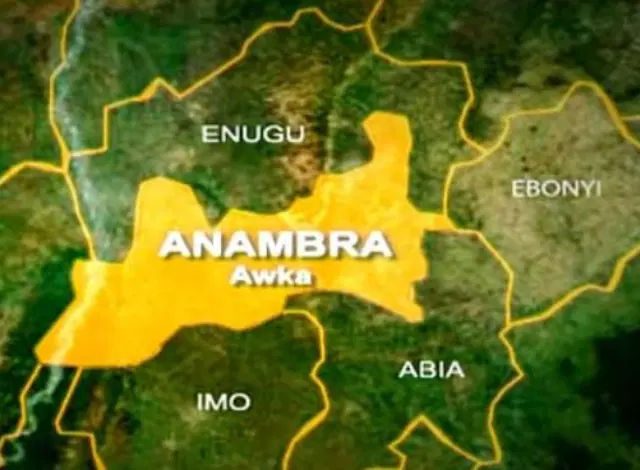Heavy rainfall on Tuesday unleashed severe flooding in parts of Onitsha, Anambra State, submerging shops, destroying goods, and disrupting daily life in one of the city’s busiest commercial zones.
The flooding, which occurred along Zik Avenue and Iweka Road near the well-known Ochanja Market, left traders and residents reeling from losses. Eyewitnesses said blocked drainage systems played a major role in the overflow, which turned the streets into torrents, sweeping into homes and businesses.
When visited by reporters on Wednesday, the aftermath was visible: soaked merchandise, damaged property, and residents using buckets to bail water out of their shops and homes. Many described the scene as one of chaos and helplessness.
Videos making the rounds on social media captured desperate moments as traders tried to salvage what they could. In one clip, a commercial tricycle operator struggled to stop his vehicle from being dragged away by the current, while others took refuge wherever they could find higher ground.
A resident, Uchenna, who spoke near the scene, expressed concern about the area’s vulnerability to flooding, especially its proximity to the River Niger. “Any misstep, and you’re swept into the river,” he said. “People know to stay indoors when it rains like this, but even that wasn’t enough this time. This flood was different—it caught everyone off guard.”

He warned that the worst might still be ahead, referencing the Nigerian Meteorological Agency’s (NiMET) recent forecast, which listed Anambra among the states likely to be affected by heavy flooding in the coming months.
Another resident, Justine Ugoh, who owns a property in the area, said the intensity of the downpour made it impossible to distinguish between the road and the drainage. “Water rushed into homes and shops. The whole area was paralyzed. Though there were no deaths reported this time, we’ve had tragic outcomes during past floods,” he said.
Ugoh stressed that despite community efforts to maintain clean drainage channels, the problem has persisted. He noted that the State Emergency Management Agency (SEMA) had been alerted, but there had yet to be any visible response.
Residents are now calling on the Anambra State Government to act swiftly—not just to assist those affected, but to implement long-term solutions that can prevent a repeat of such devastation.
“The government must invest in better drainage infrastructure and ensure that waterways are cleared regularly,” Ugoh urged. “This is not just about damaged goods; lives are at risk.”
As the rains continue, locals fear more destruction may be imminent unless proactive steps are taken to reinforce the state’s flood preparedness.



